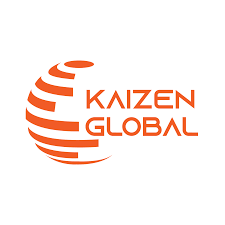Articles
The Ultimate Guide to SEO Reporting and Analytics: Measuring What Matters

Share article
In the fast-paced world of digital marketing, SEO reporting and analytics are the foundation of every successful campaign. Without tracking the right metrics, it’s nearly impossible to know what’s working, what needs improvement, and how your SEO efforts translate into tangible business results. This guide will help you understand how to build, analyze, and optimize SEO reports to measure what truly matters.
SEO reporting and analytics go far beyond simple rankings. They encompass a combination of key performance indicators (KPIs), tools, and insights that help marketers align SEO strategies with business goals. The ultimate goal is to make data-driven decisions that lead to better visibility, higher organic traffic, and increased conversions.
Key Components of SEO Reporting
A well-rounded SEO report should focus on measurable, actionable metrics. Some of the most important ones include:
1. Organic Traffic: The number of visitors reaching your website through unpaid search results.
2. Keyword Rankings: The positions of your targeted keywords on search engine results pages (SERPs).
3. Click-Through Rate (CTR): The percentage of users who click on your listing after seeing it in search results.
4. Bounce Rate: How often visitors leave your site after viewing only one page.
5. Conversion Rate: The percentage of users who complete a desired action, such as signing up or making a purchase.
Tracking these metrics regularly helps identify growth patterns and areas that need attention.
Choosing the Right SEO Reporting Tools
To make reporting accurate and efficient, you need reliable tools. Some of the best options include Google Analytics, Google Search Console, Ahrefs, SEMrush, and Moz Pro. Each of these platforms provides valuable insights, from keyword tracking to backlink monitoring and technical SEO performance.
For example, Google Analytics allows you to analyze organic traffic sources and user behavior, while Google Search Console gives you insights into keyword impressions and website performance. Combining data from multiple sources ensures a comprehensive view of your SEO efforts.
Common SEO Reporting Mistakes to Avoid
Even the best marketers make mistakes when it comes to SEO reporting. Some common pitfalls include:
Tracking too many metrics: Focus on quality, not quantity.
Ignoring user intent: Rankings mean little if they don’t align with what users are searching for.
Not segmenting data: Separate branded and non-branded traffic for accuracy.
Failing to connect SEO to ROI: Always show how SEO contributes to business growth.
Avoiding these mistakes will help you maintain clarity and credibility in your reports.
The Role of Analytics in Continuous Improvement
Analytics isn’t just about reviewing past performance—it’s about planning for the future. Regular analysis helps identify trends, track progress, and refine strategies. For instance, if analytics show high bounce rates on key landing pages, it might indicate issues with page speed or content relevance. Addressing these insights ensures constant optimization and growth.
Conclusion
SEO reporting and analytics are not just about tracking performance—they’re about understanding what drives success. By focusing on meaningful metrics, using the right tools, and aligning SEO strategies with business goals, you can turn data into actionable insights that boost visibility, engagement, and ROI.
Related articles
Bee Logical Software Solutions: Driving Digital Innovation with Logic

Zero-Click Search Isn’t the End of SEO. It’s a New Beginning

SEO Services in New York: How to Dominate the Digital Concrete Jungle

Advertisement

